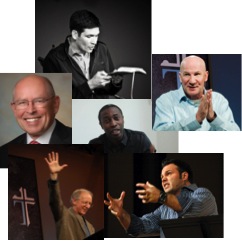In
episode 215 of Ask Pastor John,
Dr. Piper gets to the crux of the cessationist-continuationist debate.
In his view, modern prophecy is not “infallible, Scripture-level,
authoritative speaking,” but rather “something that God spontaneously
brings to mind in the moment, and—because we are fallible in the way we
perceive it, and the way we think about it, and the way we speak it—it
does not carry that same level of infallible, Scripture-level
authority.”
He claims three texts of Scripture to provide “exegetical reasons” for his view.
John’s view is also Wayne Grudem’s view, and represents a radical
departure from the historic position of the Christian church. More to
the point, it is a direct contradiction of
2 Peter 1:21:
“No prophecy was ever made by an act of human will, but men moved by
the Holy Spirit spoke from God.” What God gave to His prophets was not
diminished one iota by human fallibility. The Holy Spirit so
superintended the speaking (and writing) of every single word such that
what God wanted to say
was spoken, and it was spoken
unequivocally. Piper’s and Grudem’s novel view departs from the
biblical, historic view of the gift of prophecy and dangerously tampers
with divine integrity and authority.
From Genesis to Revelation, the Bible demonstrates four foundational
characteristics of true prophecy. First, true prophecy is always
verbal, the very words of God. It’s never an impulse or an impression; it’s never a feeling that needs interpretation.
Rather, true prophecy is a precise message. Continue at
John MacArthur
 Several months ago, shortly after the Strange Fire Conference, notable responded to some of the claims of the conference via his question-and-answer program, Ask Pastor John. Over the last couple of weeks, John MacArthur has begun responding to Piper’s remarks over at the Grace To You blog.
These posts represent valuable, rubber-meets-the-road exegetical
discussion as it relates to the cessation of the miraculous gifts, and
it’s happening between two lifelong students of Scripture who many in
our generation consider to be fathers in the faith. It’s surely an
exchange you don’t want to miss.
Several months ago, shortly after the Strange Fire Conference, notable responded to some of the claims of the conference via his question-and-answer program, Ask Pastor John. Over the last couple of weeks, John MacArthur has begun responding to Piper’s remarks over at the Grace To You blog.
These posts represent valuable, rubber-meets-the-road exegetical
discussion as it relates to the cessation of the miraculous gifts, and
it’s happening between two lifelong students of Scripture who many in
our generation consider to be fathers in the faith. It’s surely an
exchange you don’t want to miss.
















